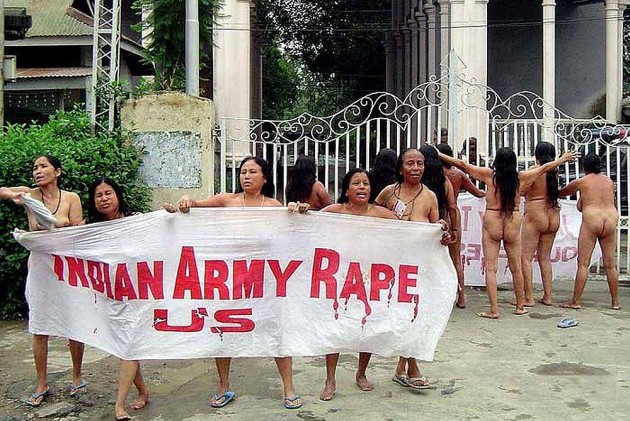‘Why do armed women cut off a particular organ of Indian soldiers engaged in combating armed insurgencies across India, be it
Punjab, Kashmir, Arunachal, Assam, Bengal or Jharkhand?’ asked senior opposition leader Azam Khan. The insinuation was unmistakable, and it had a basis: armed Maoists had indeed chopped off private parts of Central Reserve Police Force (CRPF) personnel slain in their latest big ambush in Sukma district of Chhattisgarh, which killed at least 25 soldiers. The gory act was attributed as revenge for the alleged rapes committed by the CRPF personnel, many of them corroborated by the state and national human rights commissions.
Azam Khan received a lot of flak, mostly from the unabashedly jingoist media houses that treat any criticism of the Indian Army as an affront to the ‘nation’, and the critic as ‘anti-national’. Azam Khan’s long history of making controversial statements added fuel to the fire, leaving many important nuances lost in the ensuing cacophony.
The record of the Indian Army is interesting, with lots of glory, but much gore as well. It has shown exemplary courage in both fighting at the borders and saving citizens during calamities. At the same time, it has often blemished its record by clear cut cases of committing serious human rights violations, including extrajudicial killings and rapes.
The case of Thangjam Manorama comes readily to mind when thinking of Army brutality. A resident of Manipur, Thangjam was picked up from her home by Assam Rifles personnel in the dead of the night. Her brutally tormented body with dozens of gunshots was found the next morning. A
judicial commission appointed by the government of Manipur later found that she was brutally tortured and killed. The Commission also suspected that she was gangraped by the soldiers, which could not be confirmed because she was shot in the vagina as well, perhaps to destroy the evidence.
Sadly, her case is not an aberration committed by some rogues in uniform. Dig just a little deeper, and it comes out as a pattern, a pattern of rapes, and gangrapes, deployed as a regular weapon to fight insurgencies. The pattern is so unambiguous that the Supreme Court asked the Indian Army if it has “
rapists in uniform”, while hearing a petition filed by the
Extra-Judicial Execution Victims Families Association (EVAM) in Manipur.
Such rapes, committed by those constitutionally obligated to protect citizens, are neither limited to Assam Rifles nor Manipur. Take, for example, the case of Meena Khalkho, a
16-year-old tribal girl brutally raped and killed by Chhattisgarh police personnel. This too is a finding of a
judicial commission established by the government of Chhattisgarh itself, which booked 25 cops for her rape and murder. This too, sadly, is not an isolated incident of a whole police station gone rogue.
In a later investigation in the same state, the National Human Rights Commission of India (NHRC) admitted to have found prima facie evidence of security personnel having raped and sexually and physically assaulted at least 16 women, mostly belonging to the tribal communities, and directed the state government to pay compensation to them.
In Jammu and Kashmir as well, there are countless charges of rapes, gang rapes and even mass rapes, against the security forces. It is therefore clear that India’s security forces, including the Army, have a fairly blemished record of sexual violence. Hiding such brutal crimes within the cloak of nationalism will do nothing but help those bent to unravelling the nation, citizen by citizen, state by state. Real nationalism would be to ensure that all the constitutional guarantees are applied to every single citizen. The right to life with dignity is a fundamental constitutional guarantee, and rape by security forces is a clear violation of that constitutional promise.
It is high time for the Indian state to stop trivialising rapes and identify such rogues and weed them out with exemplary punishment.
Samar is Programme Coordinator – Right to Food Programme Asian Legal Resource Centre / Asian Human Rights Commission, Hong Kong








































